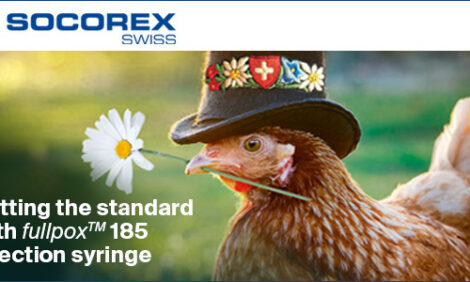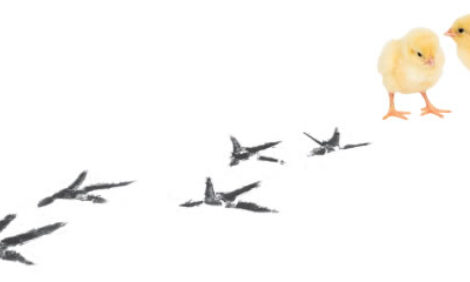



The European ban on growth-promoting antibiotics and emerging consequences for human and animal health
By - Mark Casewell, Ian Phillips, University of London; Christian Friis, Royal Veterinary and Agricultural University, Copenhagen; Enric Marco, B & M Consulting, Barcelona, Spain and Paul McMullin, Poultry Health Services Ltd, Thirsk, North Yorkshire, UK.
The European ban on growth-promoting antibiotics and emerging consequences for human and animal health - By - Mark Casewell, Ian Phillips, University of London; Christian Friis, Royal Veterinary and Agricultural University, Copenhagen; Enric Marco, B & M Consulting, Barcelona, Spain and Paul McMullin, Poultry Health Services Ltd, Thirsk, North Yorkshire, UK.
Three years later, the only attributable effect in humans has been a diminution in acquired resistance in enterococci isolated from human faecal carriers. There has been an increase in human infection from vancomycin-resistant enterococci in Europe, probably related to the increased in usage of vancomycin for the treatment of methicillin-resistant staphylococci.
The ban of growth promoters has, however, revealed that these agents had important prophylactic activity and their withdrawal is now associated with a deterioration in animal health, including increased diarrhoea, weight loss and mortality due to Escherichia coli and Lawsonia intracellularis in early post-weaning pigs, and clostridial necrotic enteritis in broilers.
A directly attributable effect of these infections is the increase in usage of therapeutic antibiotics in food animals, including that of tetracycline, aminoglycosides, trimethoprim/sulphonamide, macrolides and lincosamides, all of which are of direct importance in human medicine.
The theoretical and political benefit of the widespread ban of growth promoters needs to be more carefully weighed against the increasingly apparent adverse consequences.
For more details about this article click here
Successfully phasing out growth promoters Food Safety and Pig Production in Denmark - A Summary The "Success" of the Danish Swine Antibiotics Ban DANMAP 2000 - Use of antimicrobial agents in Denmark. Health Documentary - Antibiotics on the farm: Denmark and US Experiences Question and Answers on antibiotics in feed
Source: Journal of Antimicrobial Chemotherapy, UK - September 2003
Abstract
Following the ban of all food animal growth-promoting antibiotics by Sweden in 1986, the European Union banned avoparcin in 1997 and bacitracin, spiramycin, tylosin and virginiamycin in 1999.Three years later, the only attributable effect in humans has been a diminution in acquired resistance in enterococci isolated from human faecal carriers. There has been an increase in human infection from vancomycin-resistant enterococci in Europe, probably related to the increased in usage of vancomycin for the treatment of methicillin-resistant staphylococci.
The ban of growth promoters has, however, revealed that these agents had important prophylactic activity and their withdrawal is now associated with a deterioration in animal health, including increased diarrhoea, weight loss and mortality due to Escherichia coli and Lawsonia intracellularis in early post-weaning pigs, and clostridial necrotic enteritis in broilers.
A directly attributable effect of these infections is the increase in usage of therapeutic antibiotics in food animals, including that of tetracycline, aminoglycosides, trimethoprim/sulphonamide, macrolides and lincosamides, all of which are of direct importance in human medicine.
The theoretical and political benefit of the widespread ban of growth promoters needs to be more carefully weighed against the increasingly apparent adverse consequences.
For more details about this article click here
Further Reading
The case for banning sub therapeutic use of antibiotics
For further information on the reported benefits of banning sub therapeutic use of antibiotics, have a look at the following articles:Successfully phasing out growth promoters Food Safety and Pig Production in Denmark - A Summary The "Success" of the Danish Swine Antibiotics Ban DANMAP 2000 - Use of antimicrobial agents in Denmark. Health Documentary - Antibiotics on the farm: Denmark and US Experiences Question and Answers on antibiotics in feed
The case against banning sub therapeutic use of antibiotics
For further information on the arguments against the banning sub therapeutic use of antibiotics, have a look at the following articles: The European ban on growth-promoting antibiotics and emerging consequences for human and animal health Antibiotics Ban Wouldn't Stop Resistance Banning Antibiotics at What Cost? Antimicrobials and resistance in relation to veterinary medicines Economic impacts of banning subtheraputic use of antibiotics in swine production These and additional articles on this subject can be found in our Feed and Nutrition Features area.Related Links
Food Animal InitiativeSource: Journal of Antimicrobial Chemotherapy, UK - September 2003








